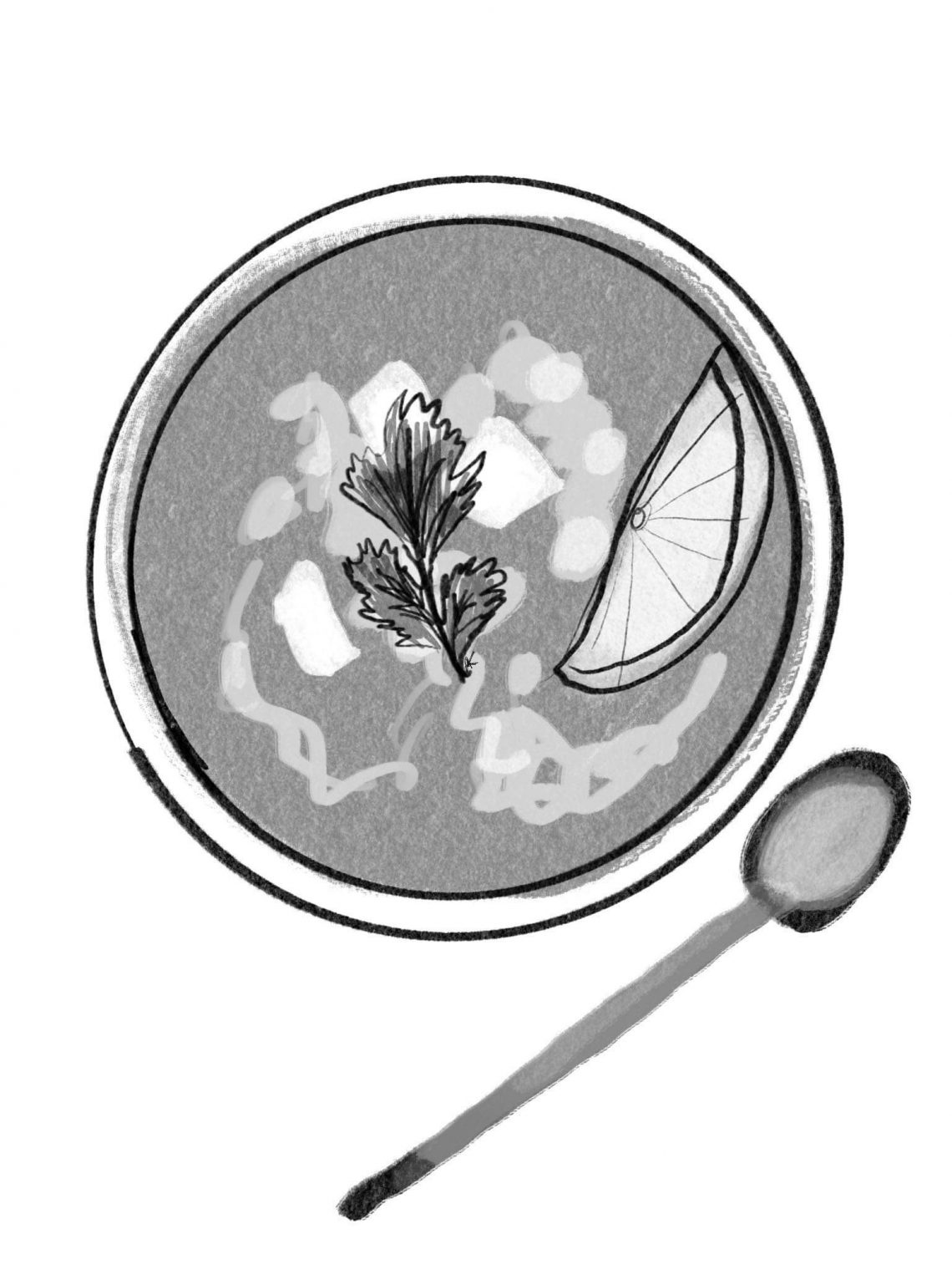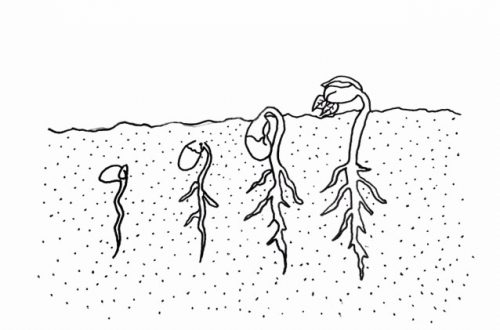by Lucy Zhang
Lucy’s essay first appeared in The Sunlight Press online publication and appears in episode 36 of The Dirty Spoon Radio Hour.
The bowl was piping hot so I couldn’t eat as fast as I would’ve liked, although I tried my best because I felt like the bottleneck to your enjoyment of the Sunday evening. I was the only person dining in. Maybe I can partially redeem myself by telling you I burnt my tongue trying to slurp down the soup and wolf down broth-soaked tortillas as quickly as possible. I know what it’s like when someone walks into a restaurant right before it closes—Now we must wait to wash all the dishes, clean up all the food, count the tips. I always preferred the quiet evenings when I worked as a hostess in high school: one or two tables seated with one or two people each, no customer complaints at the front or unnecessarily difficult takeout orders, me perusing the menu for what I’d take home as my employee-benefit free meal—vinegar-marinated jellyfish which my family loved or a container of chow fun, which was my mom’s favorite, even though she was supposed to be eating less takeout, less refined oil, less sugar, not that living on a diet of Dad’s stir-fried doufu gan and Chinese celery seemed to yield results. She claims chemo and aging messed up her metabolism.
It was the best bowl of menudo. The most amount of tripe I’ve ever received from any Mexican restaurant, and as a bonus, I appreciated those three giant pieces of beef tendon. Hot, savory and a bit gamey but not too gamey—just the right amount of funk that makes organ meats more interesting and complex than normal muscle cuts. I call it the white people tax: they can’t stomach the stomach, and so organ meats become cheaper in grocery stores for everyone else.
The other customers were all getting takeout. I could tell they were regulars: how fluidly they ordered in Spanish, how you operated in sync with the two other cooks assembling containers and packing chips and salsa. I could make out bits and pieces of the conversation—maybe more if I had retained what I learned in high school—there goes my “Outstanding Achievement in Spanish” award. I was already embarrassed enough when I tried to order my food in Spanish and stumbled when you asked what kind of drink I’d like. You resorted to English. I reevaluated the capacity at which my brain retained knowledge. I’m sure I’d be able to pick up Spanish quickly again: a refresher on vocabulary and conjugations, then some in-person practice at your taqueria and the one next door.
And I would relearn it all if I weren’t trying to un-embarrass myself with Chinese first. It has been several months since my husband and I began to speak only Chinese at home, something I’d once avoided because I was embarrassed by my American accent—my tongue curling too far back or not far back enough. I’d play Google Translate’s audio of “hán xù” (含蓄) on a loop because I kept pronouncing the “x” as “sh” when it wasn’t quite the equivalent sound, although they sounded the same to me. My parents tell me that people from their cities (Fuzhou and Shanghai) didn’t speak great Chinese, and that the proper speakers mostly came from Beijing, where my husband grew up. I had grown up mimicking my parents’ pronunciations of words like “chī” (吃) spoken as “cī,” incapable of any retroflex sounds. I assume I had learned some peasant version of Chinese, the equivalent of a kind of English spoken in some rural parts of the United States. “But you know, that doesn’t mean the Chinese we speak is wrong. Pinyin romantization came later, as a way to turn sounds into letters. “You’re always going to lose something in translation,” Dad said, after I asked Mom why she pronounced “quail egg” (ānchún dàn) as “safety egg” (ānquán dàn). As it is, I feel like I’m learning the language from scratch, every word corrected, every confused “l” sound adjusted to be an “r,” every tongue position fine-tuned to match a lip contortion—not too curled back, closer to the roof of your mouth, further down from the front lower teeth—even though I often cannot hear the difference the positions make. It’s hard not to feel like I wasted years of childhood weekends staring at Ma LiPing workbooks, learning the wrong Chinese, the hillbilly Chinese.
To properly learn a language, I don’t think I should toss another one in there until I’ve mastered the first. Although ordering food might be a better use than floundering in arguments with my husband because I can’t recall the right word. Plus, I’ve yet to try your pozole, caldo de res, caldo de pollo, and siete mares. I will order properly next time so you won’t get confused when I use “caliente” instead of “picante.” I will speak so well that not a word of English will be necessary.
Original artwork by Alex Knighten
About the Author
 Lucy Zhang writes, codes, and watches anime. She is the author of the chapbooks HOLLOWED (Thirty West Publishing, 2022) and ABSORPTION (Harbor Review, 2022). Find her at https://kowaretasekai.
Lucy Zhang writes, codes, and watches anime. She is the author of the chapbooks HOLLOWED (Thirty West Publishing, 2022) and ABSORPTION (Harbor Review, 2022). Find her at https://kowaretasekai.






